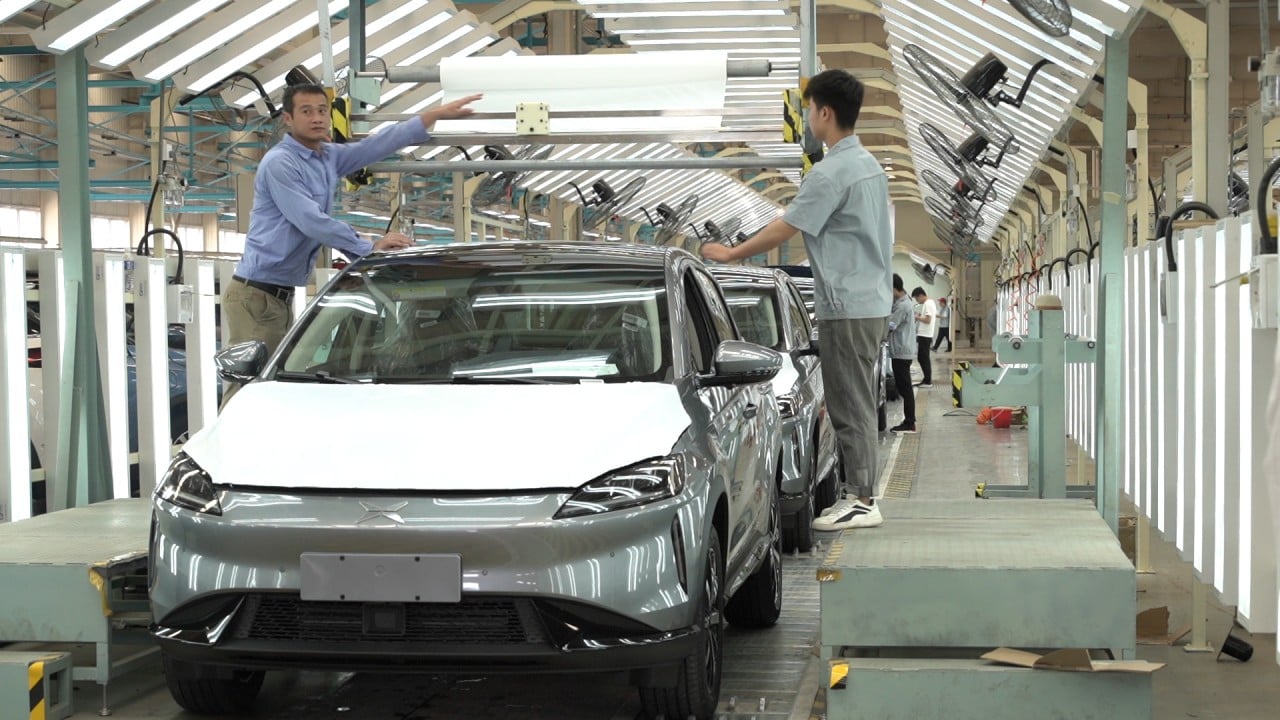
Chinese carmakers sidestep chip shortage troubles to grow sales, market share at the expense of global rivals
- Home-grown vehicle brands increased their market share to 43.1 per cent in July from 36.5 per cent in January
- Carmakers relied on alternative supplies and reduced chip usage in basic models to help sustain buoyant sales while improving their profit margins
Local proprietary vehicle brands increased their market share to 43.1 per cent in July from 36.5 per cent in January, according to Fitch Ratings in a report published on Tuesday. That translated into total deliveries of more than 6 million units in the first half of this year.
“China’s domestic companies turned out to be more flexible in dealing with the chip shortage crisis,” said Peter Chen, an engineer with car components company ZF TRW in Shanghai. “They planned ahead to secure more supplies of chips when the Chinese car market recovered from the Covid-19 outbreak in the middle of last year.”
06:01
There’s a global semiconductor shortage and this is why it matters
Traditional and electric-car makers consume high volumes of microcontrollers for engine control and in electronic systems. Chips are now a key component in building a vehicle as the pace of electrification and digitalisation accelerates.
Still, the world’s biggest passenger car market suffered a setback in July as a resurgence in coronavirus cases in several mainland provinces and abroad further disrupted chip supply. Deliveries fell 6.2 per cent to 1.5 million units from a year earlier, or 4.9 per cent from a month earlier, according to the China Passenger Car Association.
Carmakers in China are facing more disruptions, with Audi reportedly halting lines
Fitch however said Chinese carmakers had drawn on alternative supplies and reduced chip usage to help sustain buoyant sales while improving their profit margins. SAIC, Great Wall and Changan Auto delivered 640,000 units or 20 per cent more than a year ago, data from the association showed.
Two officials with domestic carmakers said companies allocated semiconductors to their bestselling models and reduced their usage in basic models to ensure that their sales would not be significantly affected.
Fitch said product mix upgrades by the indigenous brands, cost control and lower rebates to dealers also helped fatten their profit margins and propel their earnings growth during the first half.

00:47
Vehicle number 10,000 rolls off the assembly line for Chinese electric carmaker XPeng
Sino-foreign joint venture carmakers, however, saw their production fall while profitability weakened. For example, SAIC-Volkswagen reported a 7.8 per cent drop in sales to 532,400 units from a year earlier in the first half.
Many of the joint venture brands’ net profit margin had narrowed to less than 5 per cent in the first half, Fitch added. Global carmakers such as General Motors and Ford have also rationalised production worldwide owing to a shortage of semiconductors.
GM said last week it was idling its two main plants producing pickups in Indiana in the Midwest, and in Silao, Mexico. It reduced production by about 325,000 vehicles in North America in the first half because of chip shortage. Ford said in April it expected production to plunge by 1.1 million units in 2021 due to the chip-supply squeeze.
Beijing published a policy guideline about automotive chip production on September 3, pledging to simplify and shorten the process for modification of chip-related parameters, a move to ease carmakers’ production bottleneck.

